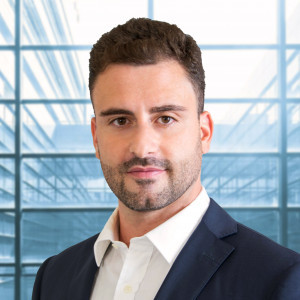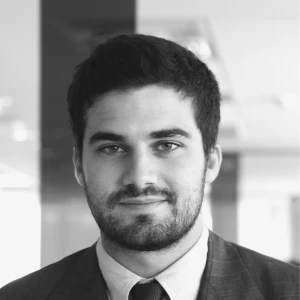Is there any specific book or videos for this particular part of the interview?
What is the best way to prepare for the fit interview part of the interview?


Hi,
Fit interview is about your building your personal narrative.
You want to avoid reading out loud your CV and introduce yourself with natural story describing who you are, your value, and how you ended doing this choices.
In the meantime I would prepare the following element so you can be ready for the interview :
- illustrate your experience with concrete exemples
- prepare a story of successs
- prepare a story of failure
- prepare an experience you want to tell about
- prepare an asnwer about a difficult situation you had to face
- prepare an answer about why consulting and why this specific firm
- prepare a personal about yourslef and what you like
One last trick, I recommand to capture your preparation with you webcam / iphone so you can see the flow and correct some langages habits you could have.
Hope this helps
Best
Benjamin
Hello!
Here are some tips that will be useful during the fit part of the interview.
Structuring your answer
- Use the S-PARADE-L method (http://www.caseinterview.com/parade-method
- Situation
- Problem
- Anticipated consequence
- Role
- Action
- Decision-making rationale
- End result
- Learning point/key takeaways
Answering the question correctly
- Be very, very specific with your stories, do not delve too much in describing details about the setting, focus instead on what you did and why you did it.
- Focus on your achievement/skills, not on your team or group.
Interacting with the interviewer
- Don't make your stories too long (1.5 minutes max)
- Try to get the interviewer to participate. You can say things like "This story is about my time volunteering in India. Have you been there?" This will probably lead to a simple yes/no answer which won't interrupt your story and will create the "we are having a conversation" feeling more than the "interviewer VS interviewee feeling".
Dealing with unexpected questions
- Do as you would in a case study question. Clarify the question to make sure that your answering what the interviewer wants and then structure your answer using S-PARADE-L.
- The more you practice the better you will become at reacting like this naturally. It will also become harder for you to get an unexpected question.
Top 3 most common questions
- Tell me about yourself.
- Structure this one very well as it is very likely that you will get asked something like it.
- You need to separate your life story into several stages (A, B, C etc) then:
- 1A. Explain the situation ("I did an internship at an Engineering company")
- 2A. Explain what you enjoyed and learned ("I had a great time analysing X and using MATLAB to improve my programming skills")
- 3A. Explain what you missed that justifies your transition to the next stage of your story (B). ("However, I was missing interaction with clients and it seemed like I was not going to get it for a few months, so I decided to move to a role in Sales at Uber")
- Repeat the structure (1B. 2B, 3B, etc.) until you get to why you are sitting in front of the interviewer right now.
- Why consulting?
- Why X company?

Hi,
- Only the questions that require stories - e.g. Leadership, Personal Impact, Etc
- See below
- It takes 1-2 weeks depending on the background
- Can only recommend taking a coach, since I have not seen any good materials.
Here is the approach I would recommend:
1) Make sure that you've prepared everything: A story about yourself, motivational questions and the three main stories - one for each of the skills the company wants to test you on - Personal Impact, Leadership, Achievement. Also, don't forget about your questions to the interviewer - you'd rather have an interesting conversation and score some point instead of a simple Q&A session
2) Then go through each story and think of the additional questions the interviewer may ask. It’s important since additional questions will take up to 50% of the interview. Try to remember the main details and facts and make sure that you know how to explain the key concepts quickly. Test your stories with your friends, ideally consultants, and ask for their feedback. There can be multiple groups of additional questions:
- The interviewer may be interested in details about the context
- He may want to check whether this was your effort or more sort of a team effort.
- “Have you faced any difficulties while implementing your solution?”- Typically an interviewer would like you to tell him how you’ve overcome those difficulties.
- Your interviewer will check how real your story is. You should be ready to provide even more granular actions, key milestones and a breakdown of potential effects.
3) Now work on 3-6 backup stories. During your interviews, you can then use these stories or adapt these stories to the additional questions your interviewer asks you.
You may be interested, why you need to prepare several stories for each question? At the end of the day, it's not that easy to come up with all of these stories. I've answered here: https://www.preplounge.com/en/consulting-forum/repating-fit-interview-stories-927#a1813
4) Next step is talking to consultants. I recommend doing a couple of mock interviews, both case+fit. You can connect with consultants via friends, company events or even LinkedIn. Consultants are entirely opened to share their experiences, but the biggest problem will be the lack of time. Sometimes you’ll need to send a kind reminder to your request, but it pays off.
Best,
Vlad

Dear A,
Hi A,
I agree with Vlad and his full and structure answer. The only thing I can add, that if you struggle with finding any "high" moments, situation or proof of your leadership skills, I would recommend you to hire a coach for that, who facilitate for pulling out all the diamonds out of you.
Hope, it helps.
Best,
André

Hi there,
Be prepared with "Resume Walkthrough", "Why Consulting" And "Why X Company".
Here's some reading on that: https://www.preplounge.com/en/articles/tell-me-about-yourself-interview-question
In addition to these questions, there are a range of personal questions they'll ask, for which you can also prepare.
Personal Stories
Step 1 - Categorize the main stories
There are 5-10 "themes" you need to prepare for. i.e. Leadership, teamwork, challenge, etc. Figure out this list and make sure your stories cover this range (PM me and I can provide you with a template for this list)
Step 2 - Create FLEXIBLE stories that cover a range of categories
You need to create 4-6 stories that each cover a range of topics. They need to be powerful stories that can be adjusted and adapted based on the question asked.
One of my "core" or "killer" stories was usable for Initiative, Achievement, Leadership, Challenge, Change of direction, AND Persuasion.
Write down these stories along STAR or similar format...use bullet points
.png)
Step 3 - Organize these stories so you know which ones can be used for what and PRACTICE
Make sure you cover the whole gambit. Then, practice getting asked a question and thinking of which stories apply. I can assure you, no-one is coming up with full stories in a few seconds. Rather, they have practiced how to adapt an existing story to the question asked.

Hi,
Objective here is for interviewer to assess wether
1) You already possess the general or specific skill for the job
2) You would fit well in the team
So keep that in mind both elements when you prepare for it.
One thing that can help you out about Personal Fit part is - exactly like for the Case Part - that performance benefits from structure. Time is normally limited to 10-15mins (unless you have a dedicated HR interview) and this basically means that time horizon you should take for your answer is a couple of minutes max. This applies to the 'strange' questions as well. Now, there are different ways of building a complete structure for the fit (e.g. the most famous like STAR/STARR) but not all the companies are looking at these elements. Happy to discuss with you about it.
Start your preparation by mapping your CV against the advertised requirements of the company and build short ad-hoc answers to that.
Best
Riccardo

Hi,
1) Make sure that you've prepared everything: A story about yourself, motivational questions and the three main stories - one for each of the skills the company wants to test you on - Personal Impact, Leadership, Achievement. Also, don't forget about your questions to the interviewer - you'd rather have an interesting conversation and score some point instead of a simple Q&A session
2) Then go through each story and think of the additional questions the interviewer may ask. It’s important since additional questions will take up to 50% of the interview. Try to remember the main details and facts and make sure that you know how to explain the key concepts quickly. Test your stories with your friends, ideally consultants, and ask for their feedback. There can be multiple groups of additional questions:
- The interviewer may be interested in details about the context
- He may want to check whether this was your effort or more sort of a team effort.
- “Have you faced any difficulties while implementing your solution?”- Typically an interviewer would like you to tell him how you’ve overcome those difficulties.
- Your interviewer will check how real your story is. You should be ready to provide even more granular actions, key milestones and a breakdown of potential effects.
3) Now work on 3-6 backup stories. During your interviews, you can then use these stories or adapt these stories to the additional questions your interviewer asks you.
You may be interested, why you need to prepare several stories for each question? At the end of the day, it's not that easy to come up with all of these stories. I've answered here: https://www.preplounge.com/en/consulting-forum/repating-fit-interview-stories-927#a1813
4) Next step is talking to consultants. I recommend doing a couple of mock interviews, both case+fit. You can connect with consultants via friends, company events or even LinkedIn. Consultants are entirely opened to share their experiences, but the biggest problem will be the lack of time. Sometimes you’ll need to send a kind reminder to your request, but it pays off.
Best,
Vlad

As others have said, the first thing is to be prepared for the standard general questions that you can expect e.g., tell me about yourself, why consulting, why this firm.
You then want to have a few stories prepared for questions which focus on:
- Leadership - e.g., when have you led a team to achieve something
- Inter-personal conflicts e.g., when have you had to convince someone of something
- Taking the lead e.g., when have you gone above and beyond what was expected of you
Then you need in the interview to be able to flex the answers to address the exact question being asked. Take time to think it through and try to not force a story into a question that it doesn't fit in.
Good luck!

Hi there,
First of all undertsand well:
1. recruiting process of the firm you apply and their style
2. what capabilities you need to prove during the process
3. Then prepare well your stories to prove you do have those capabilities.
As 90% of the candidates don't tell stories that can be well understood, I would suggest to tell your story to someone who doesn't know you very well and test if:
1. Let them tell you in their own words what they understood: are you telling stories in comprehensive way?
2. Test a few stories to see which one seems “more exciting”
Beyond that, recapitulate different stories you could say and try to think what capabilities you would like to get out of that, then choose the best suit.
Last but not least, learn the methodology we do tell stories in MBB, you can leverage resources here https://www.preplounge.com/en/bootcamp
You also have option to go for a coach, with one hour you should improve significantly. Feel free to reach out.
Good luck,
Lucie
Was this answer helpful?

My joke I tell people about FIT interviews is that “it should be a joke you would tell at a party." Now - doesn't mean that you'll be the party animal when you tell that story but it DOES mean it should show real impact and - most importantly - you REALLY care about it! Nothing is worse than listening to a story when the person telling it is bored themselves…
Some other pieces of advice:
- People get worried about having their stories be about big budgets or important people. None of that matters. What matters is telling a story that shows who YOU are. Whether the conflict was with your peer or the CEO, or you saved $100 or $10M, what matters is the action you took. If you have a great story but you're worried it doesn't have the “pop” or isn't “important enough” - think about if the actions YOU took are impactful and impressive and that's the golden key
- Be real! At my McK interview I told about a conflict I had with someone and the interviewer asked “how did that make me feel” and I was honest! I said “his actions really upset me and hurt me as I looked up to him as a mentor. Which made it clear I needed to remedy the situation for both our benefits'” - consultants are people too, not robots

Hi Anonymous,
I wouldn’t recommend stopping the preparation on the fit part; you can limit it to less time per day (say 1-2 questions, right before the case), but I would suggest continuing the preparation on this area. You can think of the behavioural part as a language: so far that you can train a bit every day, it becomes far easier to reach a satisfactory level than doing 8 hours in a row after not having practiced for a while. Moreover, as you don’t know when the final will be, in this way you can always be and feel prepared on that part.
As for the ways to practice on fit questions, I would also suggest you to:
4. Register your answers and listen to them; then work on
- the tone of your voice. Try to avoid “ahm” and monotone voice, as could lay to the perception of poor communication. If you notice that your voice needs improvement, the best thing to do would be listening to a podcast with a good speaker daily; you will start to absorb his/her communication without noticing it after few days;
- the content of your answers; although you wrote them down already, hearing your answers loud can give you a completely different perception of them.
5. If not done already, prepare your questions at the end, they are part of the fit part as well and may actually be an important point to help the interviewer to decided in your favour, in case he/she is uncertain. Below you can find some suggestions on how to work on them:
https://www.preplounge.com/en/consulting-forum/open-house-at-bcg-311
Hope this helps,
Francesco

First, it depends on the firms you are preparing for.
McKinsey, Bain, and BCG look for different things.
However, certain things are common. For instance, the most important ones are:
- You should show motivation to join that specific firm
- You should be aware of what the firm does and which practice you want to join
- You have to convey that you have curiosity, energy, pragmatism, an analytical mindset, and the ability to work in a team
- Your answers should definitely be concise, structured, top-down, relevant, and clear
- You should have to remain calm and humble in case the interviewer is tough and want to test your behavior under stress
Given those requirements, you can structure your preparation accordingly.
My further two cents here are to discuss your answers with people who already work in MBB, in particular coaches.

Great points already mentioned by Maikol. I will add a few more thoughts
- Authentic stories are strong/powerful stories. If there is real conflict, real challenge, it will make the story more compelling
- Don't underestimate the time it takes to prepare for the fit interview
- It can take a while to find the right stories, especially if some of them took place a while back
- It also takes time to tweak, refine and sharpen the content of the stories
- Lastly, I strongly encourage you to also practice the fit portion. Don't just read and rehearse it in your mind, practice it live with someone to improve the actual delivery

Hi,
1) Make sure that you've prepared everything: A story about yourself, motivational questions and the three main stories - one for each of the skills the company wants to test you on - Personal Impact, Leadership, Achievement. Also, don't forget about your questions to the interviewer - you'd rather have an interesting conversation and score some point instead of a simple Q&A session
More details here: Typical McK PEI question for each dimension
and here: "Why consulting?" & "Why Mckinsey/BCG/Bain" Questions
2) Then go through each story and think of the additional questions the interviewer may ask. It’s important since additional questions will take up to 50% of the interview. Try to remember the main details and facts and make sure that you know how to explain the key concepts quickly. Test your stories with your friends, ideally consultants, and ask for their feedback. There can be multiple groups of additional questions:
- The interviewer may be interested in details about the context
- He may want to check whether this was your effort or more sort of a team effort.
- “Have you faced any difficulties while implementing your solution?”- Typically an interviewer would like you to tell him how you’ve overcome those difficulties.
- Your interviewer will check how real your story is. You should be ready to provide even more granular actions, key milestones and a breakdown of potential effects.
3) Now work on 3-6 backup stories. During your interviews, you can then use these stories or adapt these stories to the additional questions your interviewer asks you.
You may be interested, why you need to prepare several stories for each question? At the end of the day, it's not that easy to come up with all of these stories. I've answered here: Repeating Fit Interview Stories
4) Next step is talking to consultants. I recommend doing a couple of mock interviews, both case+fit. You can connect with consultants via friends, company events or even LinkedIn. Consultants are entirely opened to share their experiences, but the biggest problem will be the lack of time. Sometimes you’ll need to send a kind reminder to your request, but it pays off.
Feel free to reach me - I have a separate session for working on PEI and crafting your stories with a lot of tips and consulting tools.
Best,
Vlad

Dear A,
The fit questions in these interviews are really about story telling. Of course, you will get the typical questions like: Why do you want to be a consultant? Why do you want to work at this firm?
The part the differentiates you will be the “tell me about a time” questions that inevitably take up a large portion of the interviews at these firms. The better you are at telling your stories, the better off you’ll be.
Just remember that answering to any questions like this is your chance to shine and prove your leadership skills. Actually, any stories that you mention in your answer can highlight your best abilities. For that you can follow common framework in answering any questions. It consists of 5 parts:
1. Situation
2. Problem
3. Solution
4. Results
5. Your learnings
Hope, it helps.
Best,
André

Hello!
On top of the insights already shared in the post, next week will be pusblished in PrepLounge´s Shop material related.
In concrete, the "Integrated FIT guide for MBB". It provides an end-to-end preparation for all three MBB interviews, tackling each firms particularities and combining key concepts review and a hands-on methodology. Following the book, the candidate will prepare his/her stories by practicing with over 50 real questions and leveraging special frameworks and worksheets that guide step-by-step, developed by the author and her experience as a Master in Management professor and coach. Finally, as further guidance, the guide encompasses over 20 examples from real candidates.
Hope you find it useful!

Hello!
On top of the insights already shared in the post, next week will be pusblished in PrepLounge´s Shop material related.
In concrete, the "Integrated FIT guide for MBB". It provides an end-to-end preparation for all three MBB interviews, tackling each firms particularities and combining key concepts review and a hands-on methodology. Following the book, the candidate will prepare his/her stories by practicing with over 50 real questions and leveraging special frameworks and worksheets that guide step-by-step, developed by the author and her experience as a Master in Management professor and coach. Finally, as further guidance, the guide encompasses over 20 examples from real candidates.
Hope you find it useful!

Hello!
On top of the insights already shared in the post, next week will be pusblished in PrepLounge´s Shop material related.
In concrete, the "Integrated FIT guide for MBB". It provides an end-to-end preparation for all three MBB interviews, tackling each firms particularities and combining key concepts review and a hands-on methodology. Following the book, the candidate will prepare his/her stories by practicing with over 50 real questions and leveraging special frameworks and worksheets that guide step-by-step, developed by the author and her experience as a Master in Management professor and coach. Finally, as further guidance, the guide encompasses over 20 examples from real candidates.
Hope you find it useful!

Dear A,
Agree here with other experts, that there is no need in praticing FIT part for so long. FIT part is important part, but you can keep practicing more and more is cases.
As for FIT part you can make also few sessions before your interview to train it again.
Wish you good luck,
André

FIT questions are designed for the following reasons:
-
to know candidate on the personal level
-
to know whether candidate can to the values of the company
-
to know which soft skills candidate has
How to practice FIT part?
-
Prepare your answers
-
Structure them according ti
-
Practice them out loud
-
Practice them in front of the mirror and notice your face expressions
What interviewers are trying to assess in you:
-
Personal FIT - would the interviewer like to work with you as a colleague
-
Are you reliable/ independent/ confident person
-
Can you be sent along to the client
-
Would you fit to the corporate culture
So, considering this information, I recommend you to be well-prepared, but in case you will be asekd something unexpected - you already know what interviewers wnat to hear from you.
Was it helpful?
GB

FIT questions are designed for the following reasons:
-
to know candidate on the personal level
-
to know whether candidate can to the values of the company
-
to know which soft skills candidate has
How to practice FIT part?
-
Prepare your answers
-
Structure them according to
-
Practice them out loud
-
Practice them in front of the mirror and notice your face expressions
What interviewers are trying to assess in you:
-
Personal FIT - would the interviewer like to work with you as a colleague
-
Are you reliable/ independent/ confident person
-
Can you be sent along to the client
-
Would you fit to the corporate culture
So, considering this information, I recommend you to be well-prepared, but in case you will be asekd something unexpected - you already know what interviewers wnat to hear from you.
Was it helpful?
GB












